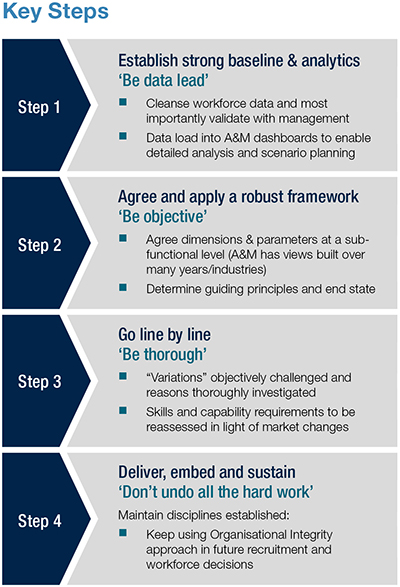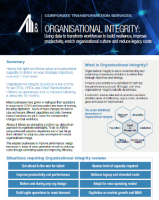Organisational integrity: Using data to build resilience, improve productivity and reduce legacy costs
Many businesses have grown or reshaped their operations in response to COVID-19 and associated new ways of working, including digitisation. Many of these changes are here to stay and require different capabilities and skills; however, many businesses have yet to make the corresponding changes to their workforce.
What is the importance of organisational integrity?
Understanding and improving organisational integrity makes a business truly agile by removing co-ordination roles within the workforce which are not delivering value and resolves the root causes of organisational issues, such as poor or limited cross-functional communication.
Businesses that do not properly assess and manage their organisational integrity, or focus solely on spans and layers, often fail to deliver the expected benefits following change programmes, and usually benchmark poorly versus peers. Find out more here.
What are the four key steps to organisational integrity?

We are pioneering a bottom-up, data-driven approach to organisational integrity using advanced analytics, experience and a “get things done” mindset to diagnose, plan and implement robust organisational change. Find out more here.
A&M has worked with some of the largest European and global businesses to stabilise financial performance, transform operations, catapult growth and accelerate results through decisive action. Find out more about how we can help by clicking the download below.






